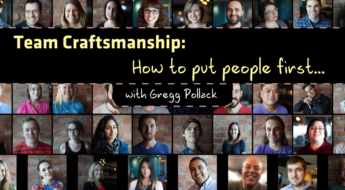Click here to signup for Part 2 free.
About 8 years ago equity broke my business and severed one of the best friendships I ever had. If we would have set things up more fairly in the beginning this all would have been avoidable. Instead we had to dissolve the business and abandon the brand we both worked so hard to create.
 In case you’re not familiar, your “equity” refers to how much you own of a business. In the startup world it’s what I might want to pay you until we start making cash. Equity is kind of like a promise for future cash. If you work for me for equity I’m promising you I’ll try to make it worth a lot some day when we sell the business or some other financial event occurs.
In case you’re not familiar, your “equity” refers to how much you own of a business. In the startup world it’s what I might want to pay you until we start making cash. Equity is kind of like a promise for future cash. If you work for me for equity I’m promising you I’ll try to make it worth a lot some day when we sell the business or some other financial event occurs.
In my opinion the only fair way to do equity is something called the Dynamic Equity Split. Instead of equity being divided up in the beginning (too early) or when investment comes (too late) this method divides up equity as the company is built. Equity is dynamically based on the quantity of resources each person puts in.
 So as a simplified example, if we both work the same amount on a startup for month #1 we get 50%. If I stop working and you’re the only person who works month #2 you then own 2/3 or 66.7% of the startup. If I still don’t work on month #3 and you work the same amount you’re going to end up owning 3/4 or 75% of the business, and so on.
So as a simplified example, if we both work the same amount on a startup for month #1 we get 50%. If I stop working and you’re the only person who works month #2 you then own 2/3 or 66.7% of the startup. If I still don’t work on month #3 and you work the same amount you’re going to end up owning 3/4 or 75% of the business, and so on.
In order to actually implement this in practice, the system is going to need to get more complex. We’re going to need to answer the following questions:
- If you leave the business do you get to keep your equity?
- If one of us is a Jr. employee and the other is Sr. do we earn equity equally?
- If one of us puts in cash or equipment how does that impact equity?
- If one of us gets paid a little cash to live off of, how does that factor into equity?
- What happens when investment comes along?
- Is there actually a legal way to create a company where the equity is dynamic?
I’ve got the answers to all these questions, and I put it into a free 6-day video course that will change the way you look at equity. To get the next video just give me your email using the form below and I’ll email it to you. Don’t worry, I’m not going to send you too many emails, and I will respect your privacy.






Look fun and valuable Gregg. Looking forward to your thoughts
This is a matter I have to deal with many times over. I don´t know everything and I have so many hours of time available, and they severely reduced if I have to work to pay my bills. So I resourced to partners, we work hard, but soon enough, there is a departure and things left uncompleted. I have managed to keep the friendship, but not the trust
Sorry to say that but it sounds like a complicated framework which potentially leads to endless arguments.
Calculating/measuring performance, resource and value is an extremely complicated task. It requires lots of knowledge and tracking. Doing this collectively and per each individual is harder. I think the idea behind your model is being fair to everyone when slicing equity and avoid possible conflict related to this process. IMHO this is an extremely hard problem to solve since it involves human factor. There will be always someone who is not happy. Sometimes being simple is the most effective solution. Layout your terms in advance to avoid any conflict in the future.
I agree with you Ed. It’s complicated and could lead to conflict.
But the simple way can be a mess too. Imagine I invent and prototype a simple but novel electronic device, and my buddy who is a patent researcher gets the thing patented for only the cost of the patent fee. Hey cool, we both get our percentage: 50/50 is as good as anything else.
Now we have to sell it, so we bring in a sales guy. Maybe we reduce our shares and give him 33%. If he does a spectacular job, we just underpaid him. If he does a bad job, we just gave him welfare. Without the ability to adjust, we might have either given our best salesperson motive to quit, or permanently created a money leak.
What happens if either I or my buddy suddenly needs to get a day job and quits contributing on a day to day basis? Without the ability to adjust, it could become a race to the bottom.
The thing Gregg’s method gives us is the ability to adjust after the fact. The devil is in the details, and I’m sure no apportionment of capital is a panacea, but ability to adjust can be a very good thing in some situations.
Hi Gregg, Congrats, you’ve reinvented the wheel (or copied it). See “Slicing Pie” by Mike Moyer (2012): http://amzn.to/2d5HEJ4
Most of this is based on Slicing Pie. I got permission from Mike to post my content and I plug his book a lot in the following videos. 😉
Is there really a need to be so negative? You could have asked about how “Slicing Pie” contributed to Greg’s thoughts rather than nearly accusing him of ripping it off. A little benefit of the doubt helps the world roll more smoothly.